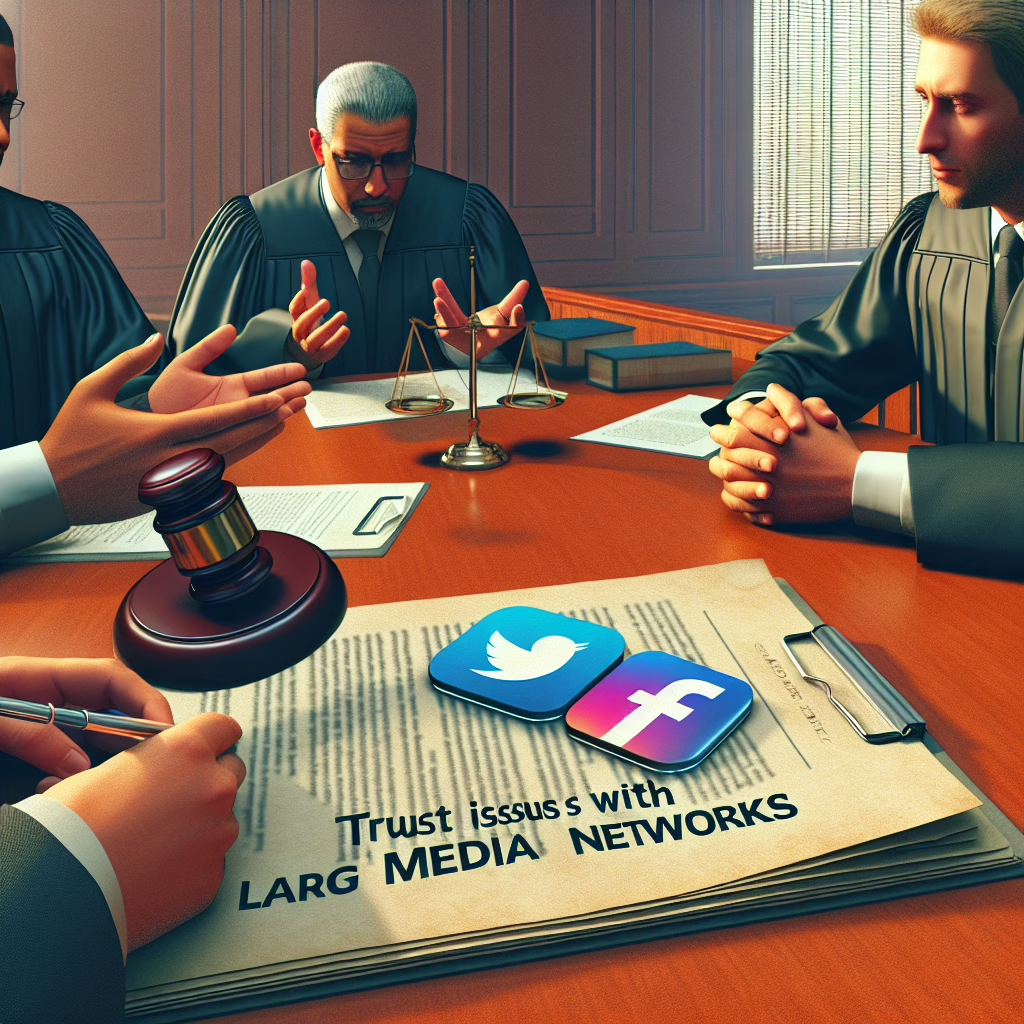Welcome to the thrilling world of antitrust litigation, where the stakes are high, and the players are even higher! In this corner, we have Meta, the tech titan known for its social media prowess through platforms like Instagram and WhatsApp. And in the other corner, we have the FTC (Federal Trade Commission), armed with legal briefs and a mission to keep things fair. Buckle up, folks, because this is going to be one entertaining ride!
The FTC Steps into the Ring
The FTC is not just your average regulatory agency; it’s on a mission to tackle what it perceives as monopolistic practices by Meta. The agency’s main concern? The way Instagram and WhatsApp dominate our social interactions and potentially stifle competition. You know, like that friend who always insists on choosing the restaurant, regardless of how many times you suggest pizza!
This case is about more than just a love-hate relationship with social media; it’s about ensuring that everyone has a fair shot at success. After all, nobody wants to live in a world where only one platform reigns supreme. The FTC argues that Meta‘s acquisitions of these platforms not only eliminated competitors but also transformed them into essential tools for our daily communication—like how we can’t seem to function without our morning coffee.
The Drama Unfolds: Legal Warfare Begins!
The courtroom drama has all the makings of a blockbuster film—lawyers in suits delivering impassioned speeches, witnesses recalling their experiences with social media, and perhaps even a surprise cameo from a celebrity influencer! The trial is set to explore whether Meta‘s practices harm consumers or create an unfair playing field.
What’s more interesting is how this could change the way we interact online. With both Instagram and WhatsApp being such integral parts of our digital lives, any significant changes could shake things up like an unexpected plot twist in a soap opera. Imagine if your favorite features got altered or if new competitors emerged from the shadows to challenge Meta‘s reign!
A Deep Dive into Antitrust Laws
You might wonder, what exactly constitutes antitrust behavior? It sounds all very legalese and complicated, but at its core, it’s about keeping markets competitive. The government wants to prevent companies from using their size and power to squash smaller rivals before they even get off the ground. Think of it as ensuring every player gets their turn in a game instead of just letting one person hog all the glory.
The current case against Meta shines a light on how these laws apply in our digital age. With platforms like Instagram evolving from photo-sharing apps into full-blown marketing empires, questions arise about whether these giants are becoming too big for their britches. Is it time for some regulation to ensure that innovation doesn’t stall out while we’re busy scrolling through endless reels?
The Impacts on Users and Creators Alike
The outcome of this case could ripple across the entire social media landscape. If the court sides with the FTC, we could see increased competition leading to new features and options for users. More importantly, smaller creators might find new opportunities to thrive without feeling overshadowed by corporate giants.
This isn’t just about legal jargon; it’s about real people using these platforms every day. Picture this: A world where new apps can challenge Instagram‘s photo filters or where messaging apps can outshine WhatsApp‘s end-to-end encryption. Now that would be something worth scrolling through!
Understanding the FTC and Its Role
The FTC plays a crucial role in maintaining a healthy market. With growing concerns over data privacy and corporate influence, their scrutiny of tech giants like Meta is more relevant than ever. By focusing on practices related to Instagram and WhatsApp, the FTC aims to ensure that competition thrives and consumer choices expand. The question arises: How will their actions reshape the future of social media?
The Future of Social Media: What Lies Ahead?
No matter which way the verdict swings, one thing is certain: this case will shape the future of social media for years to come. Whether you’re an avid user of Instagram, a fan of memes on WhatsApp, or someone who still has an active MySpace account (we see you!), changes are likely coming.
If nothing else, this trial reminds us that social media isn’t just about selfies and status updates; it’s also about power dynamics in a rapidly changing digital landscape. Who knew that keeping up with likes could also mean keeping up with legal battles?
If you’ve got thoughts swirling around your head like confetti at a New Year’s party regarding this trial or what it means for your social media experience, drop them in the comments below! We’d love to hear your take!
A huge thank you to The Verge for their insightful coverage on this topic! You can read the original article here.

